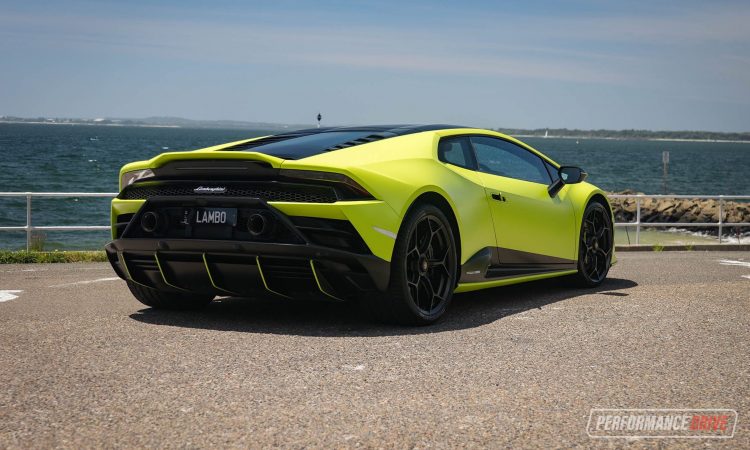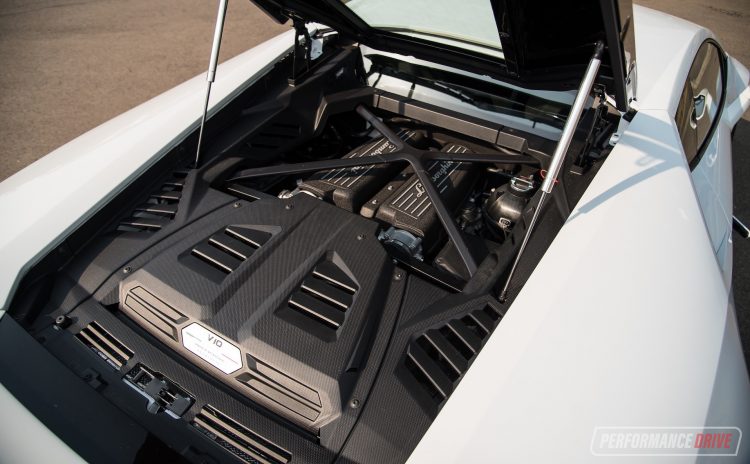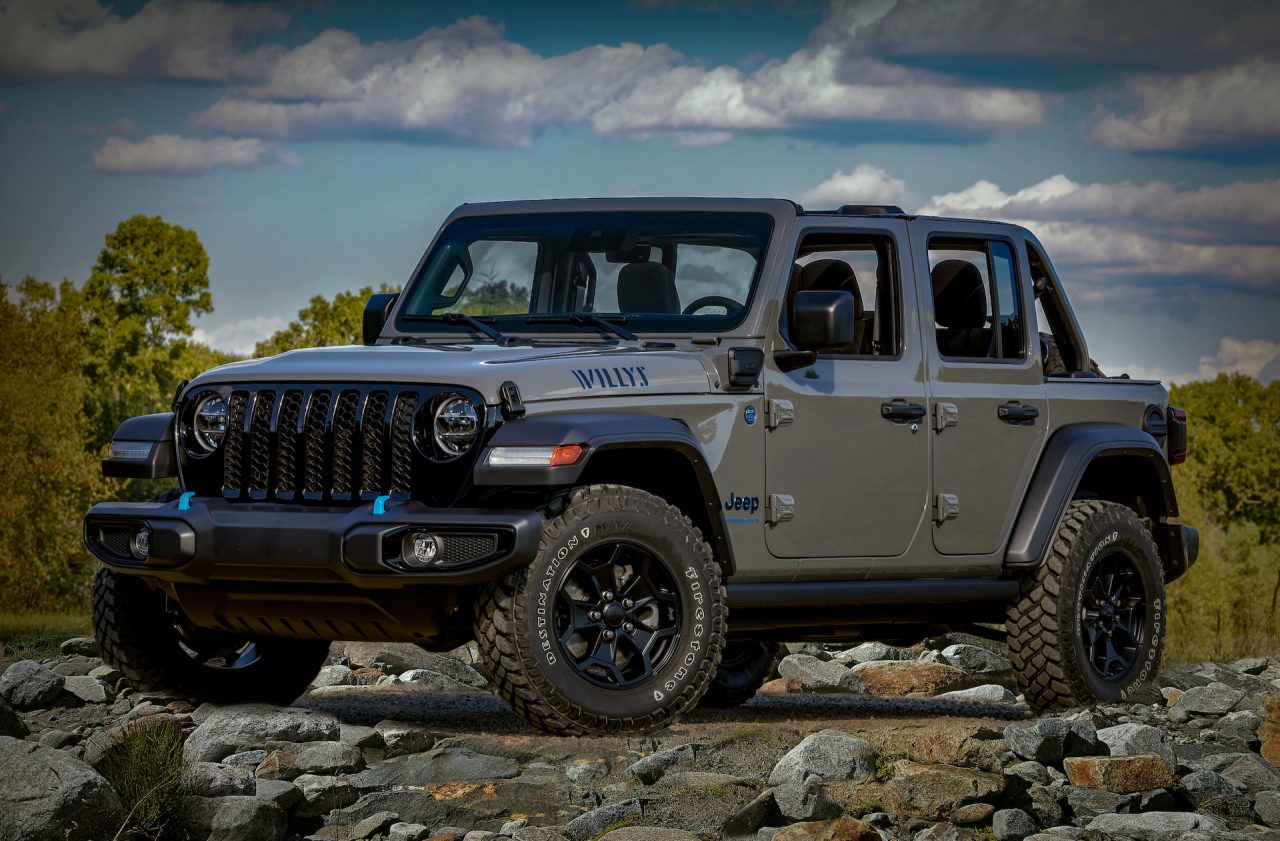Some technical details of the next-gen Lamborghini Huracan successor have been reported, with speak of a twin-turbo V8 hybrid replacing the iconic naturally aspirated V10.
According to a recent Motor Trend report, the nex-gen entry supercar – name not yet confirmed – will come powered by the 4.0-litre twin-turbo V8 found in the Urus (and various other VW Group products). This will mean an end of a decades-long tradition, and perhaps the last thread of original Lamborghini since VW took over.
The current Huracan is powered by a 5.2-litre naturally aspirated V10. The engine started life as a 5.0-litre unit, powering the Gallardo (Huracan predecessor) back in 2003. Although VW oversaw development of the Gallardo and its V10, the engine design and development was done by Lamborghini.
Later in the Gallardo’s lifespan it switched to the Audi-developed 5.2-litre V10, which used an even firing order (as opposed to odd in the 5.0L) as well as Audi’s direct injection ‘FSI’ technology. There are other fundamental differences as well, including bore spacing and component materials.
Those worried about the switch to the V8 diminishing the power or indeed the character and theatre of the V10 can take some comfort, because the hybrid electric system is set to ensure just that. According to the report, the V8 will feature an electric unit mounted between the engine and gearbox.
It’s understood the electric motor will provide low-end torque and power, while the V8 engine runs pretty much as a naturally aspirated unit. As the revs build, the turbochargers are set to provide boost from 7000rpm and beyond. Well how far will it rev, you ask? Up to 10,000rpm, apparently.
With a redline that high it should offer a very exciting driving experience. Maybe not as exciting as the V10 purely on sound, but 10,000rpm is 10,000rpm nonetheless. The outgoing V10 only revs to around 8500rpm.
Details regarding the drive system and whether or not it will be rear- or all-wheel drive are yet to be discovered. However, the new model is expected to roll on a revised version of the current platform, which supports both.
The current platform is shared with the Audi R8, but that car will be phased out and replaced by a unique fully electric supercar. As such, it’s believed VW isn’t prepared to fork out the finance required to develop an all-new layout for the Huracan successor.
We should know more details later this year as production is set to commence some time in 2024. We’re expecting spy shots and videos to surface any time now.
Before we say goodbye to it, take a listen to the outgoing V10 in our 0-100 and engine sound video below.


